Introduction
Yes, dogs can eat cucumbers. Cucumbers classify as dog-friendly human food and are loaded with health benefits. Plus, cucumbers are available year-round and are easy to source. Not to mention that dogs love them.
When used responsibly – in the right amounts and serving sizes, cucumbers make excellent dog snacks. Being high in water and low in calories, they are excellent for chubby dogs on weight-loss regimens.
Why is Cucumber Good for Dogs?
Cucumbers are good for dogs as they are packed with water and health-boosting nutrients. They are interestingly flavored and textured, and most dogs enjoy munching on cucumber slices. Here is an in-depth review of the reasons cucumbers are good for dogs.
A Healthy Snack
Because of the unique nutritional profile, cucumbers are classified as healthy snacks. They offer nutrients and plenty of water without adding unnecessary calories to the menu. They are a win-win dog snack.
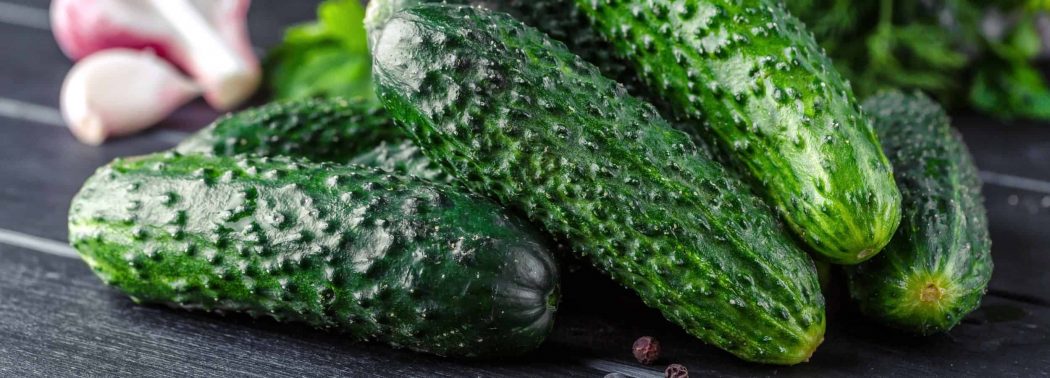
Support Hydration
Made of as much as 95% water, cucumbers support proper and health-boosting hydration. Maintaining normal hydration levels is critical for supporting the dog’s overall health and well-being.
Low in Sodium and Fat
Another reason cucumbers classify as healthy snacks are that they are low in harmful nutrients like sodium and fat. Both sodium and fat contribute to weight gain, which is a risk factor for various health issues and conditions.
Nice Taste and Texture
The cucumber’s taste and texture are dog-friendly. Dogs love how cucumbers taste and are intrigued by the crunchy texture, which provides plenty of stimulation. Simply put, munching on cucumbers supports the dog’s innate desire to chew.
Dietary Fiber
Cucumbers contain high amounts of dietary fiber. Dietary fibers are important for maintaining a healthy gut, cardiovascular system, and normal blood cholesterol and sugar levels.
Rich in Vitamin C
Cucumbers are particularly rich in vitamin C. Vitamin C plays several major roles in the dog’s body. For example, it strengthens the immune system, supports tissue regeneration, reduces cognitive aging, and acts as a potent antioxidant.
B-Complex Vitamins
There are several B-complex vitamins you can find in cucumbers. Namely, they are rich in vitamin B1 (thiamine), vitamin B5 (pantothenic acid), and vitamin B6 (pyridoxine).
High in Vitamin K
Cucumbers are also rich in vitamin K. This vitamin is essential for activating the blood clotting cascade and preventing unnecessary bleeding.
Potassium Overload
Cucumbers are high in potassium. Potassium promotes proper digestion, heart pumping, and muscle function. Potassium is also vital for supporting the dog’s kidneys.
Contains Micro-Minerals
Cucumbers contain significant amounts of micro-minerals such as manganese and molybdenum. Both minerals support cellular function and aid the metabolism of nutrients.
Can Cucumber be Bad for Dogs?
Yes, cucumbers can be bad for dogs if used inadequately. For example, if offered as a meal substitute, with the peel left on, or simply too often and in large serving sizes.
So, if you plan on adding cucumbers to your dog’s menu, there are several potential risks you need to take into consideration. Here are the reasons cucumbers can be bad for dogs.
Not Very Nutrient Dense
Since cucumbers are made of water, they are not as nutritionally dense as other fruits and veggies. However, this is not a serious issue as long as you do not use cucumbers as meal substitutes or make them a regular part of the dog’s menu.
Stomach Upsets
Because of the dietary fiber and water content, cucumbers can wreak havoc on the dog’s tummy and trigger a bout of digestive upset manifested with diarrhea and lack of appetite. Most stomach upset episodes can be managed at home.
Pesticide Contamination
Intense commercial production of cucumbers requires using pesticides. Pesticides are harmful to dogs, just like they are harmful to people. Thorough washing and peeling of the cucumbers decrease the risk of pesticide exposure. Purchasing organic is the best way of avoiding pesticides.
How Many Cucumbers Can My Dog Eat?
When it comes to dogs, cucumbers classify as treats meaning they should not account for more than 10% of the dog’s daily food intake. However, since there are other snack options, you should limit the cucumbers intake to once or twice a week.
Namely, a healthy, medium-sized dog can eat one-third of a cucumber. Smaller dogs should be given smaller amounts, while larger dogs can eat more – up to half or even three-fourths of a cucumber.
If your dog has never eaten cucumbers before, it is advisable to start with a smaller serving size and then gradually increase the portion size. Obviously, if there are signs of tummy upset, you should not increase the amount.
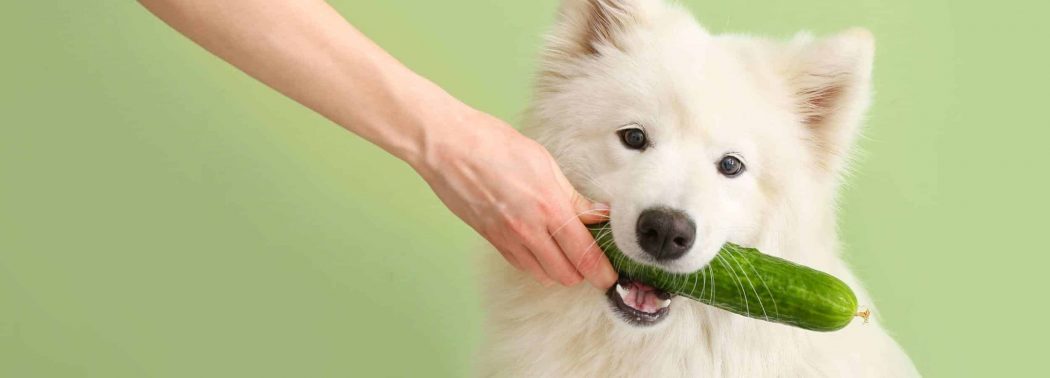
How to Prepare and Serve Cucumber for Your Dog?
Giving your dog cucumbers starts with shopping. It is important to hit the local grocery store or farmer’s market to find ripe and preferably organic cucumbers with no signs of spoiling.
Once you have the cucumbers, you need to wash them thoroughly and remove the peel. In theory, dogs could digest cucumber peel, but it can trigger upset or even be contaminated with pesticides.
When the cucumber is peeled, you should chop it down into small, bite-sized chunks. Then, either give the chunks as treats or mix them with the dog’s meal. You can also combine the cucumber with other ingredients to cook homemade snacks.
Summary
All things considered, it is safe to say that cucumbers are dog-friendly. In fact, they are not just safe – they are health-boosting and extra delicious. Simply put, when used adequately, cucumbers make an excellent addition to the dog’s menu.
However, when serving cucumbers to your dog, you need to be mindful of the feeding guidelines. Remember that cucumbers are occasional treats and dogs need nutritionally rich and balanced meat-based diets.
Sources
- Vitamin K Deficiency, Cornell University College of Veterinary Medicine, 2020
- 10 Ways to Improve Your Dog’s Digestion & Gut Health, The Rogue Pet Science Team, 2021
- Cognitive Aging in Dogs, Durga Chapagain, Friederike Range, Ludwig Huber, and Zsófia Virányi, 2018
- Does my dog have an upset stomach?, Southwind Animal Hospital, 2021
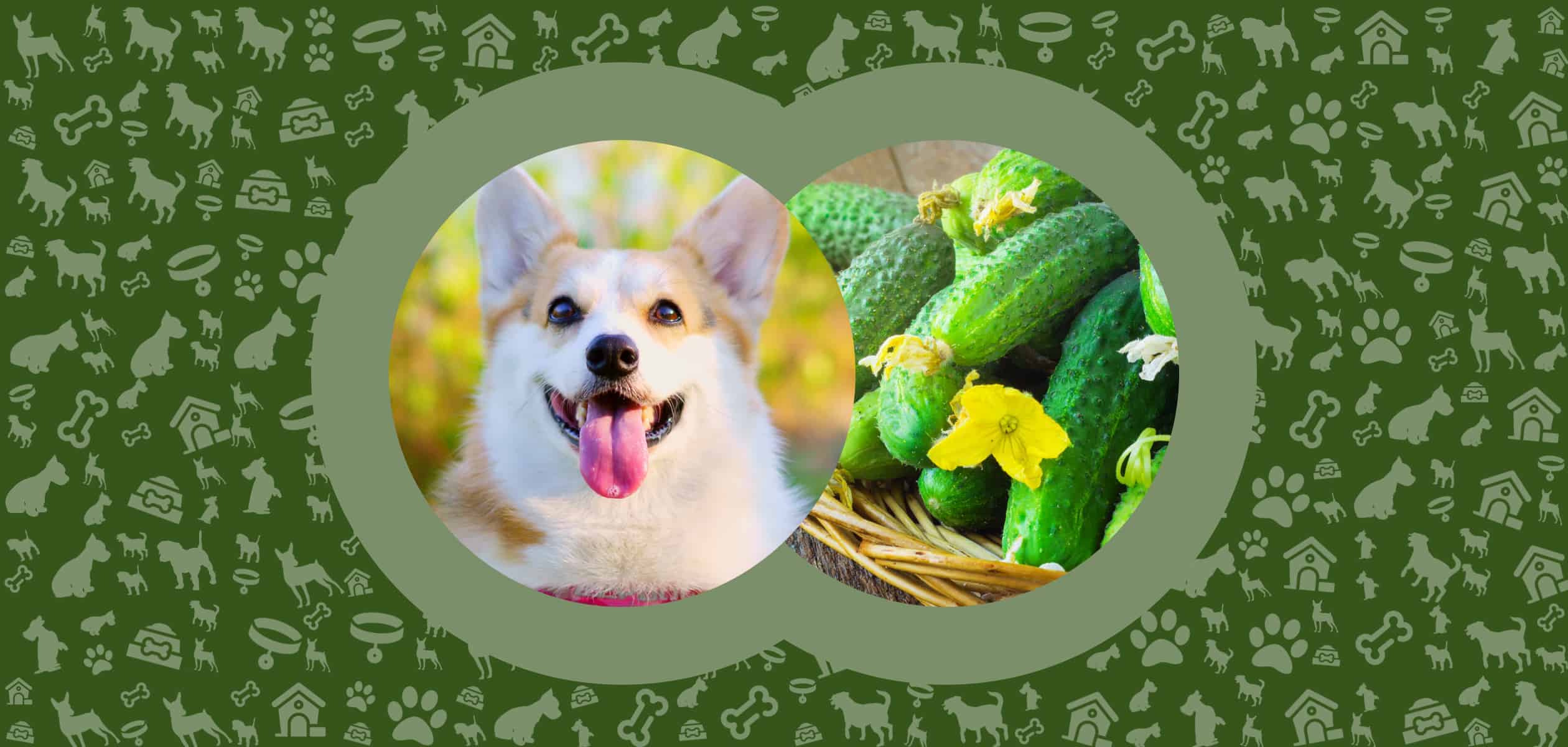
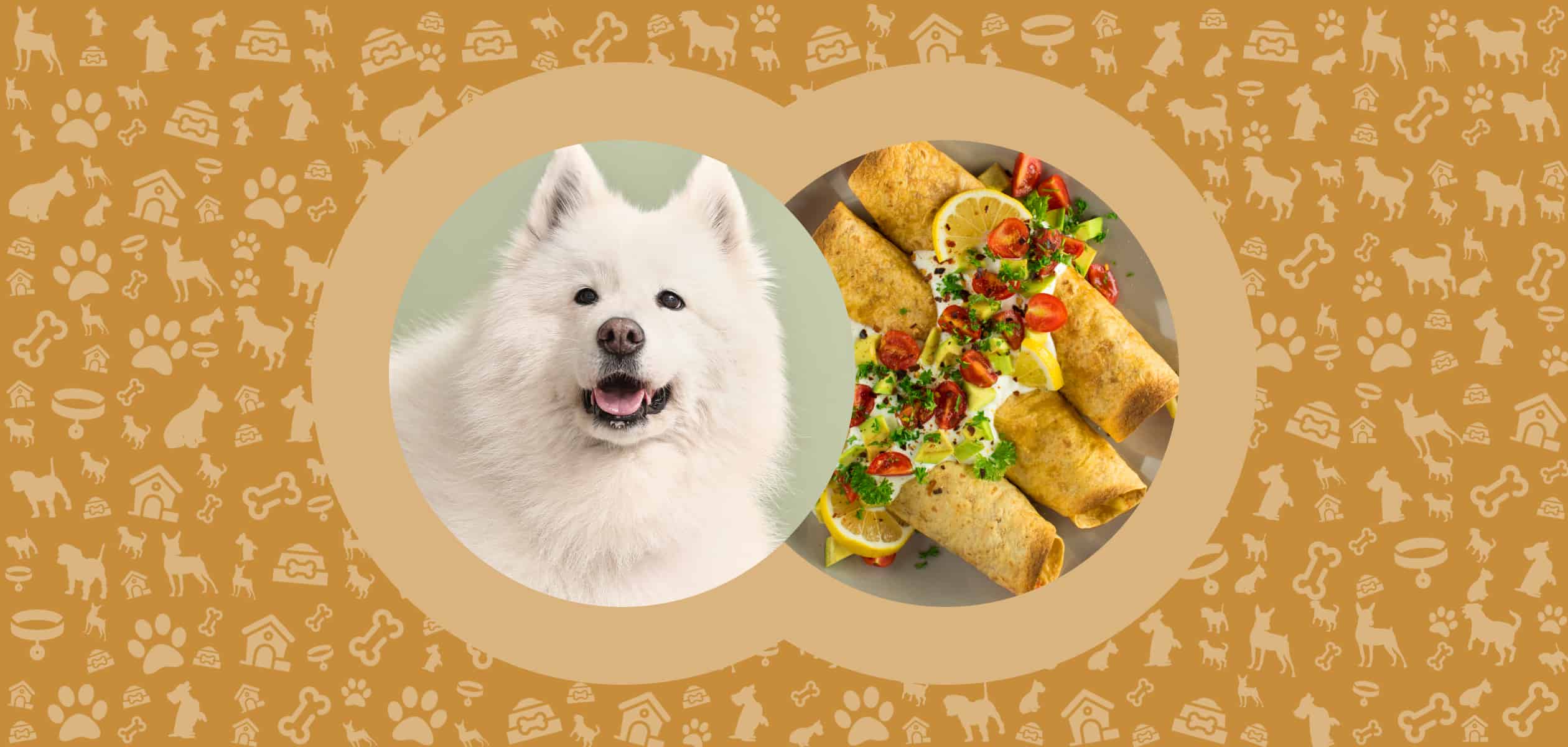
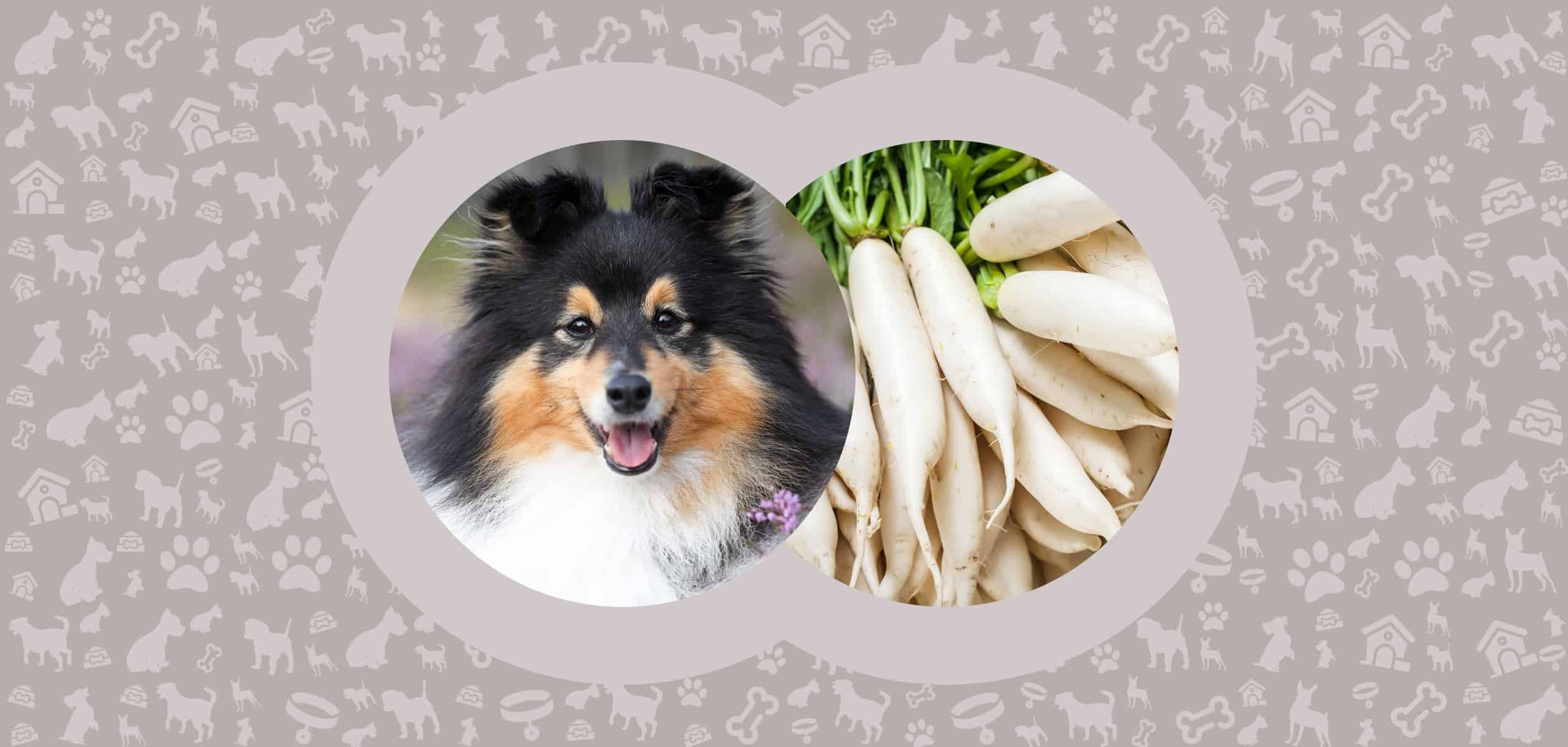
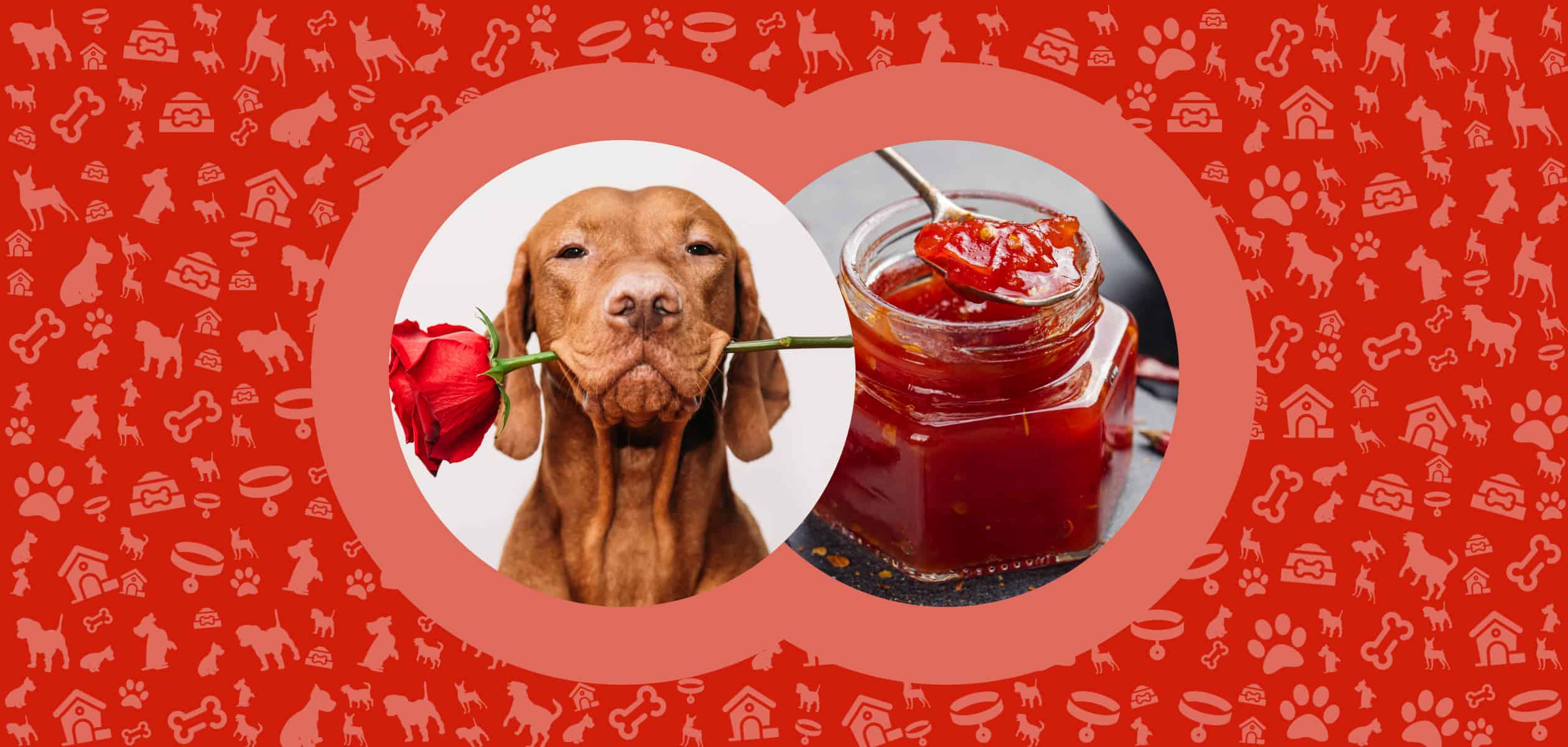
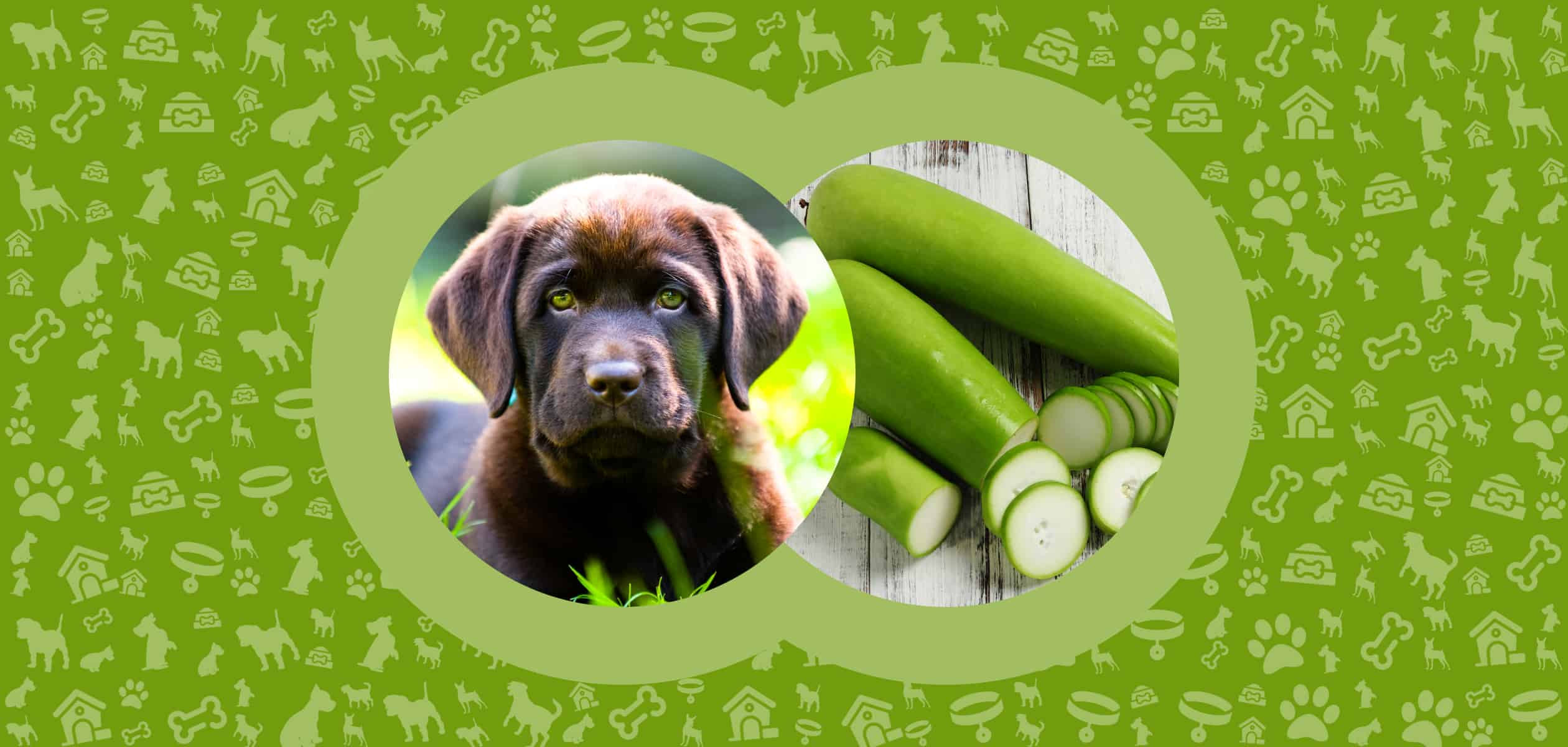
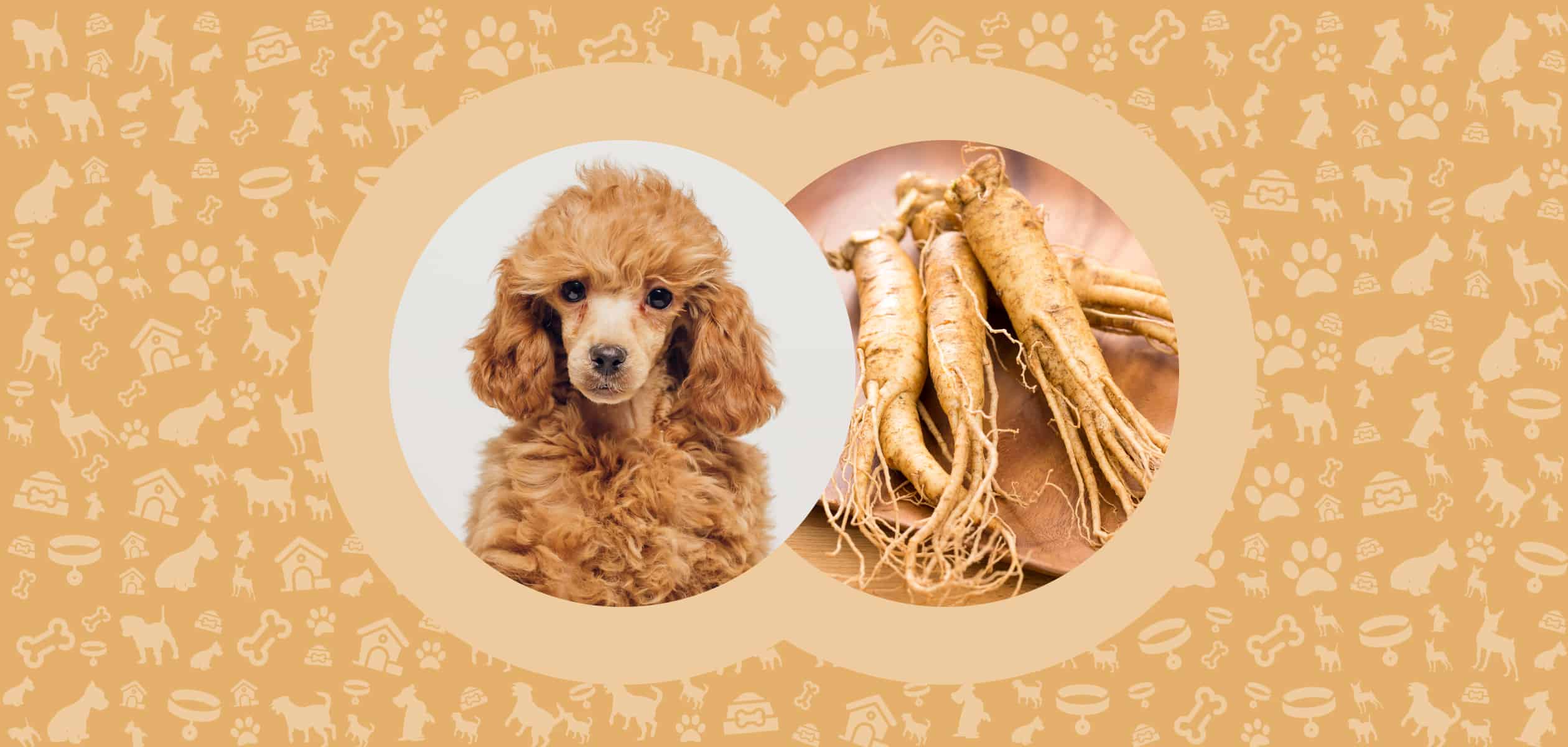
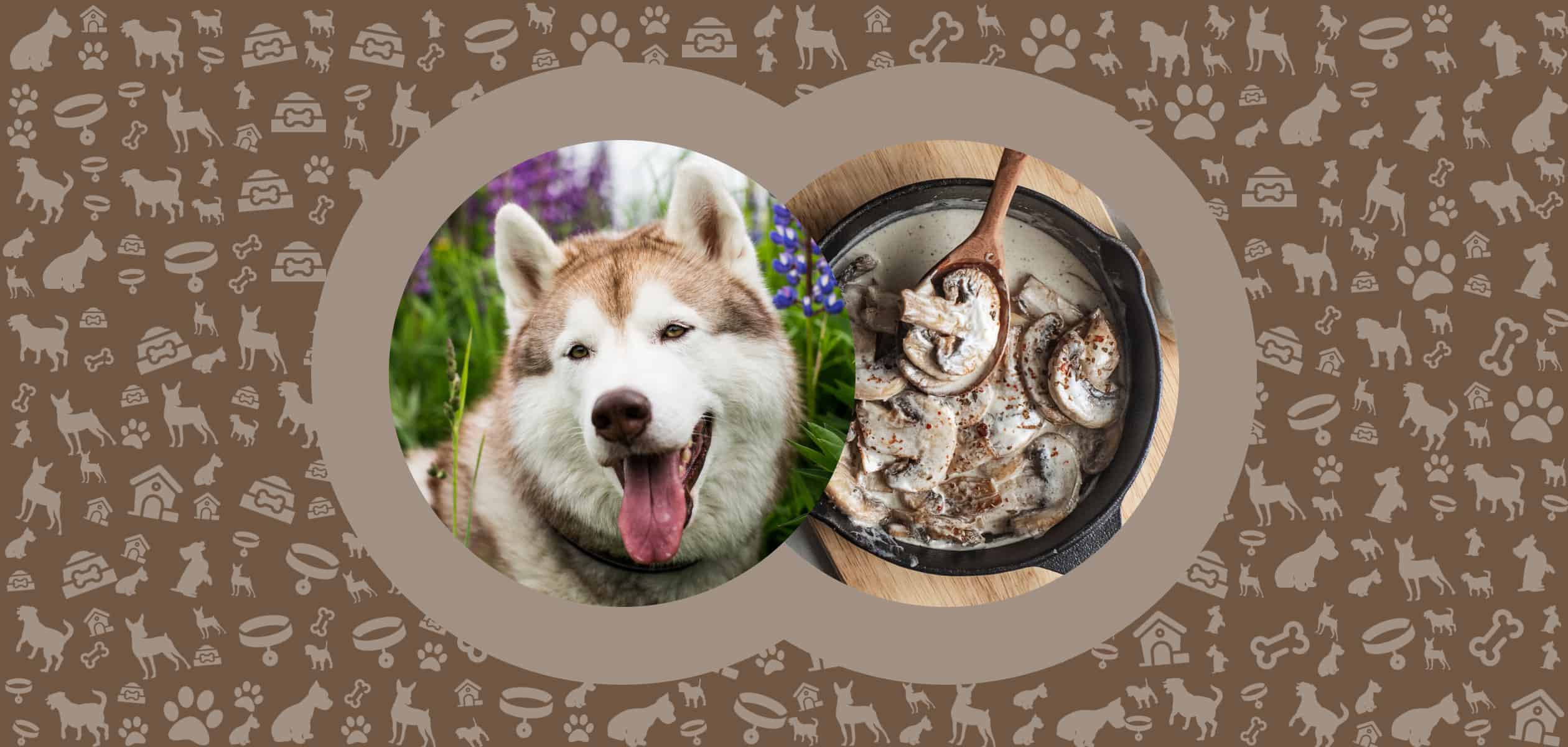
Leave a Comment